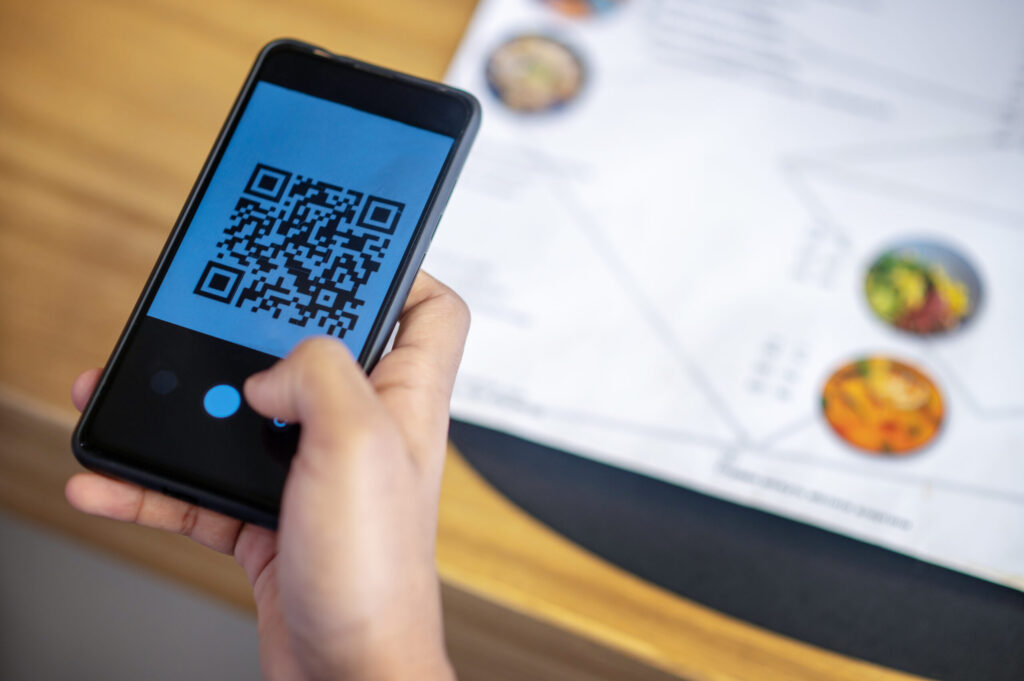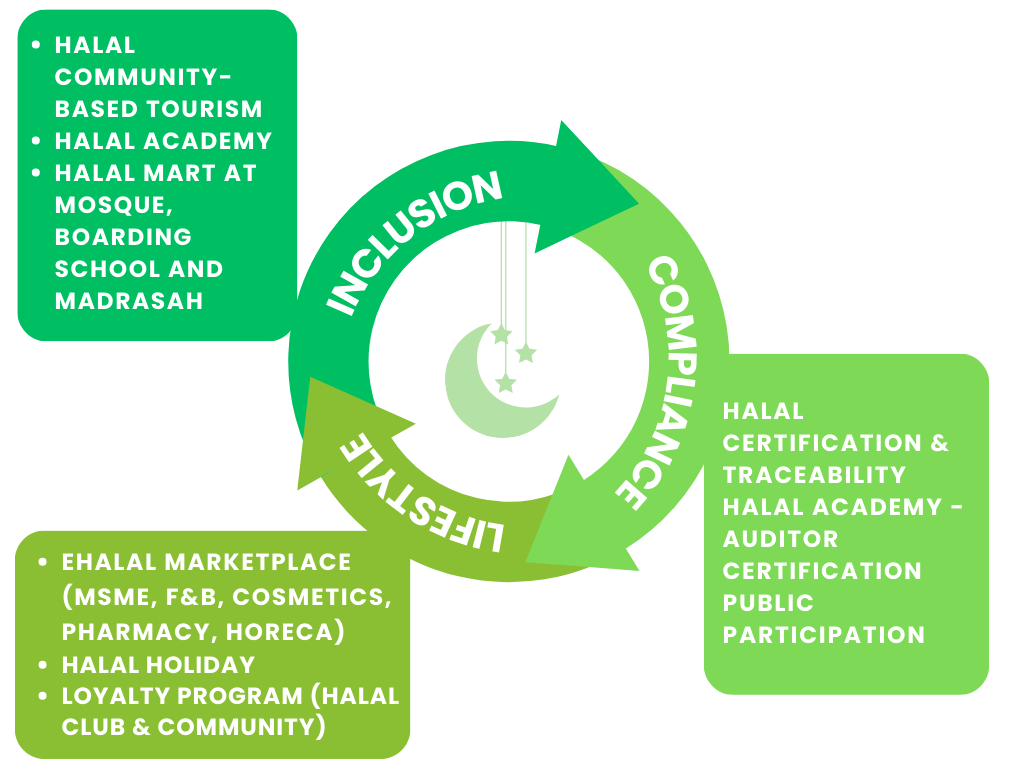Halal
Ecosystem
A vibrant Halal ecosystem where authenticity meets modern convenience
About Halal Hub
Halal Hubs are established to meet the growing demand for halal-certified products and services, particularly in regions with significant Muslim populations or where there’s an increasing interest in halal products among non-Muslim consumers.


Our Mission
Inspire and create new job opportunities in the Halal Space, fostering collaboration through increasing awareness of players.
Halal and creating interlinkages and create value in the market through application of Halal Living.

Services in halal hub ecosystem
More

halal value chain
Compliance
- Track & Trace (QR Code)
- Data Account
- Certification System
- eLearning & LMS
LifeStyle
- Track & Trace (QR Code)
- Data Account
- Certification System
- eLearning & LMS
- ERP System
Inclusion
- Track & Trace (QR Code)
- Data Account
- Payment System
- Certification System
- eLearning & LMS
- ERP System
- Social Media Analytic
- Social Media Intelligence
Introducing
HALAL CERTIFICATION
Halal certification ensures products adhere to Islamic dietary laws.

halal certification

Within the realm of a halal ecosystem, businesses are obligated to comply with precise guidelines and regulations to guarantee alignment with Sharia principles for their offerings. These guidelines encompass aspects like ingredient sourcing, manufacturing procedures, hygiene protocols, ethical considerations, and beyond.
The halal ecosystem involves a diverse array of stakeholders, ranging from producers and manufacturers to regulators, certification bodies, consumers, and other entities integral to the supply chain.
how our ecosystem certifies a halal product
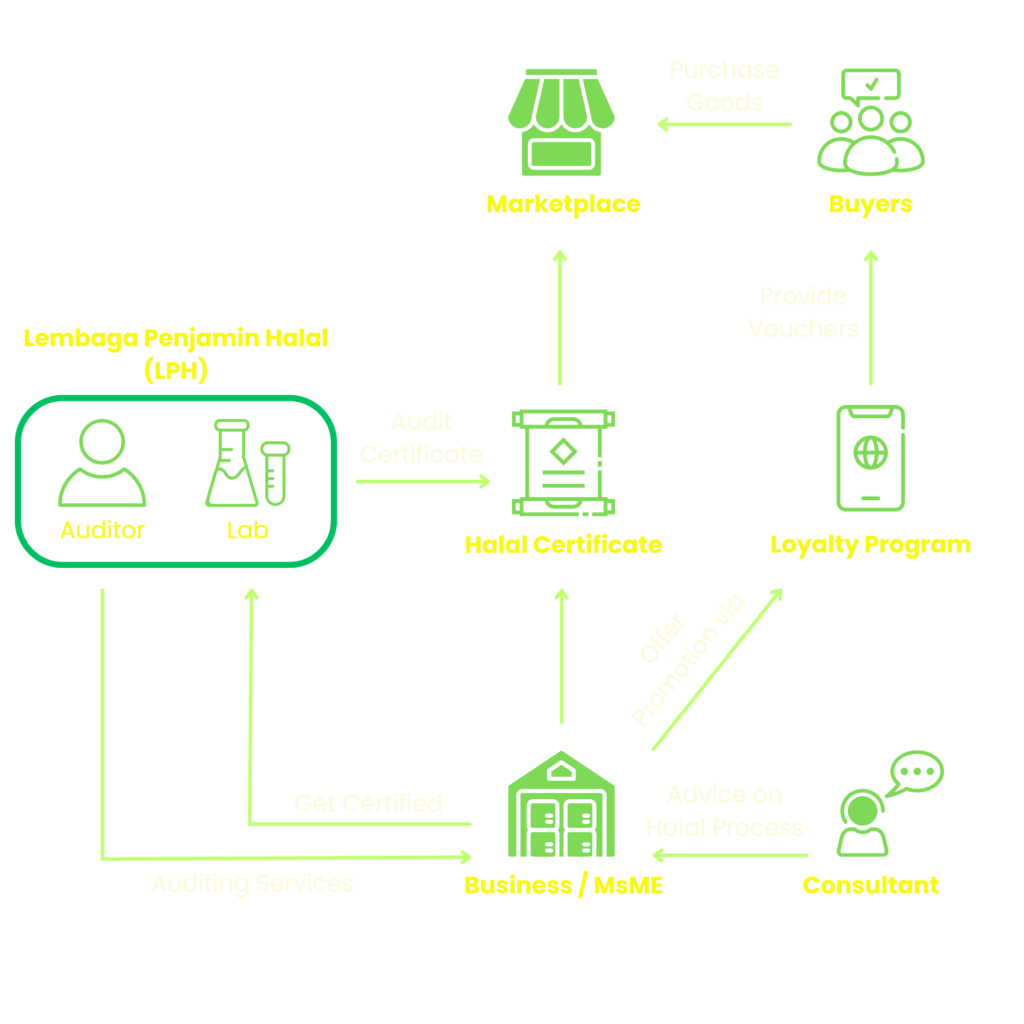
how our ecosystem trains a certified halal auditor
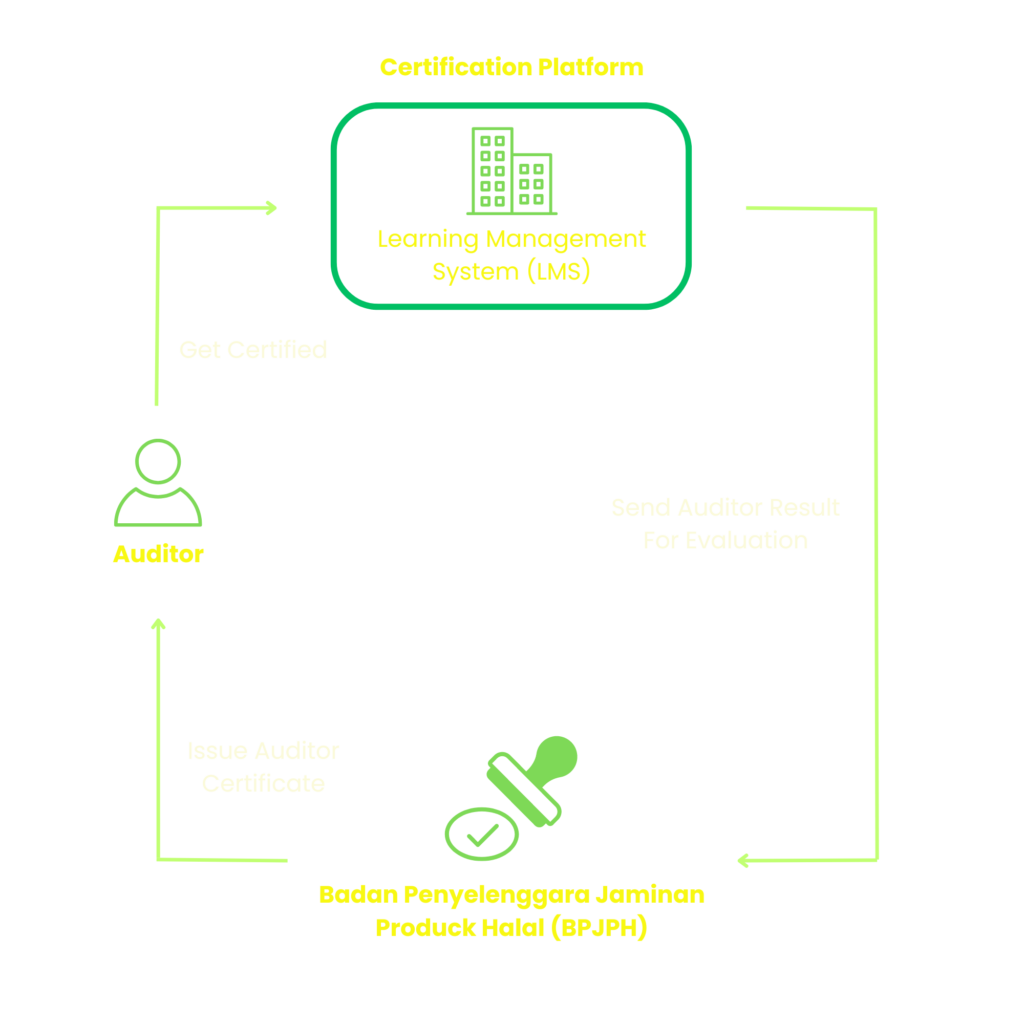
Simplifying halal certification entails refining the procedures for ensuring compliance with Islamic law requirements. This involves establishing standardized certification protocols and criteria, which can streamline the certification process. Additionally, implementing online platforms for certification applications and processing can enhance efficiency. These platforms facilitate tasks such as document submission, inspection scheduling, communication with certifying bodies, and certification issuance.
Introducing
TRACK & TRACEABILITY
enhancing trust and accountability throughout the supply chain
Halal certification enhances supply chain transparency with openness, digital tracing tools, and quality standards, fostering consumer trust and market accessibility.

TRACEABILITY AND THE FOOD SUPPLY CHAIN
Within the realm of a halal ecosystem, businesses are obligated to comply with precise guidelines and regulations to guarantee alignment with Sharia principles for their offerings. These guidelines encompass aspects like ingredient sourcing, manufacturing procedures, hygiene protocols, ethical considerations, and beyond.
The halal ecosystem involves a diverse array of stakeholders, ranging from producers and manufacturers to regulators, certification bodies, consumers, and other entities integral to the supply chain.



Traceability in Halal e-commerce
Establishing a halal assurance system in eCommerce involves verifying supplier credibility, conducting regular audits, ensuring legal compliance, and partnering with Halal Certification Bodies. User feedback mechanisms allow consumers to contribute to the assessment of product halal authenticity, fostering transparency and trust within the eCommerce ecosystem.
supply
SMEs & Manufacturers
Enterprises & manufactures involved in halal production.
Tech Companies
Provide technological solutions, infrastructure, and support.
Logistic & transportation
Involved in manufacturing logistics & distribution logistic
Financial Institutions
Provide working capital and trade supply chain finance.
Certification Bodies
Ensuring businesses comply with Halal requirements.
Digital Halal Traceability Platform
digital halal traceability platform
• Centralized platform for halal product traceability
• Certification tracking
• Supply chain visibility
• Data aggregation and storage
• Real-time data from IOT networks
• Regulatory compliance monitoring
• Real-time alerts and notifications
• Analytics and Reporting
• Collaboration and Interoperability
demand
Retailers & distributors
Sale and distribution of halal products
to consumers.
eCommerce & trade Platforms
Connect consumers with halal
products, facilitate online transactions.
Logistic (last-mile)
final delivery of halal products to consumers or retail locations
Consumer Advocacy Groups
Represent consumer interests and promote awareness
Introducing
DIGITAL HALAL ACADEMY
Establish ethical audit practices for credibility: integrity, impartiality, confidentiality.

Halal academy
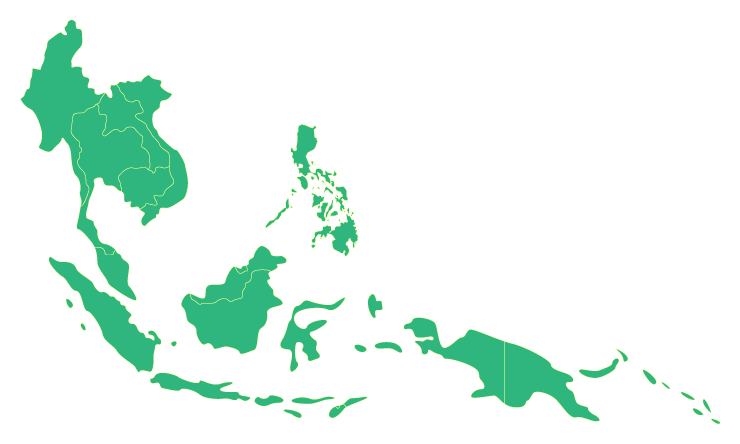
The Halal Academy introduces a pioneering approach to Halal certification in Indonesia, offering comprehensive training to establish a network of certified auditors. This innovative initiative aims to democratize the certification process, empowering individuals from diverse backgrounds to assess Halal compliance across various industries. Through rigorous training and professional development, aspiring auditors gain the expertise needed to conduct thorough audits with credibility and integrity. As this network expands, businesses nationwide can easily obtain Halal certification, fostering consumer trust and driving growth in the Halal economy.

Bootcamp
Intensive training programs are tailored to impart specific skills or technologies within a condensed timeframe. These immersive experiences span from a few weeks to several months, aiming to swiftly equip participants with practical knowledge for their desired career path or industry.

Webinar
Webinars consist of presenters delivering content via video, audio, and slides to an audience. Interactive elements like chat boxes and polls enhance engagement. Participants register beforehand and access the webinar through a web browser or specialized platform.

Self-learning
Online self-learning is the independent acquisition of knowledge or skills using digital resources, without direct supervision. It utilizes online platforms, courses, tutorials, and resources for self-paced learning according to individual schedules.
establish competent halal auditors
Certification by a Halal Body Committee ensures credibility, consistency, and adherence to standards in halal auditing. It signifies that auditors have undergone rigorous training and assessment, aligning their practices with industry standards. This certification is essential for legal compliance, market access, and building consumer trust. By employing certified auditors, businesses uphold the integrity of halal certification processes, ensuring the reliability of halal-certified products and services for Muslim consumers.

Introducing
PUBLIC PARTICIPATION
Empowering the public to ensure Halal integrity through real-time tracking and transparency.
Information in every products
Public participation in Halal initiatives reinforces the importance of quality assurance and adherence to Islamic principles in the production and distribution of Halal products and services. Businesses are motivated to uphold high standards to maintain consumer trust and satisfaction.


Why we participate?
Public participation in Halal initiatives reinforces the importance of quality assurance and adherence to Islamic principles in the production and distribution of Halal products and services. Businesses are motivated to uphold high standards to maintain consumer trust and satisfaction.
This approach not only cultivates loyalty and meaningful participation but also encourages advocacy within the community. Members can accumulate points through their involvement and redeem them for various rewards, ranging from discounts and complimentary products to exclusive experiences associated with Halal certification. This system serves as a catalyst for continued engagement and reinforces the importance of Halal integrity among participants.
Introducing
e-commerce
Empowering the public to ensure Halal integrity through real-time tracking and transparency.
Halal e-commerce traceability ensures products comply with Islamic laws, tracking origin to end consumer, verifying Halal standards throughout supply chain.
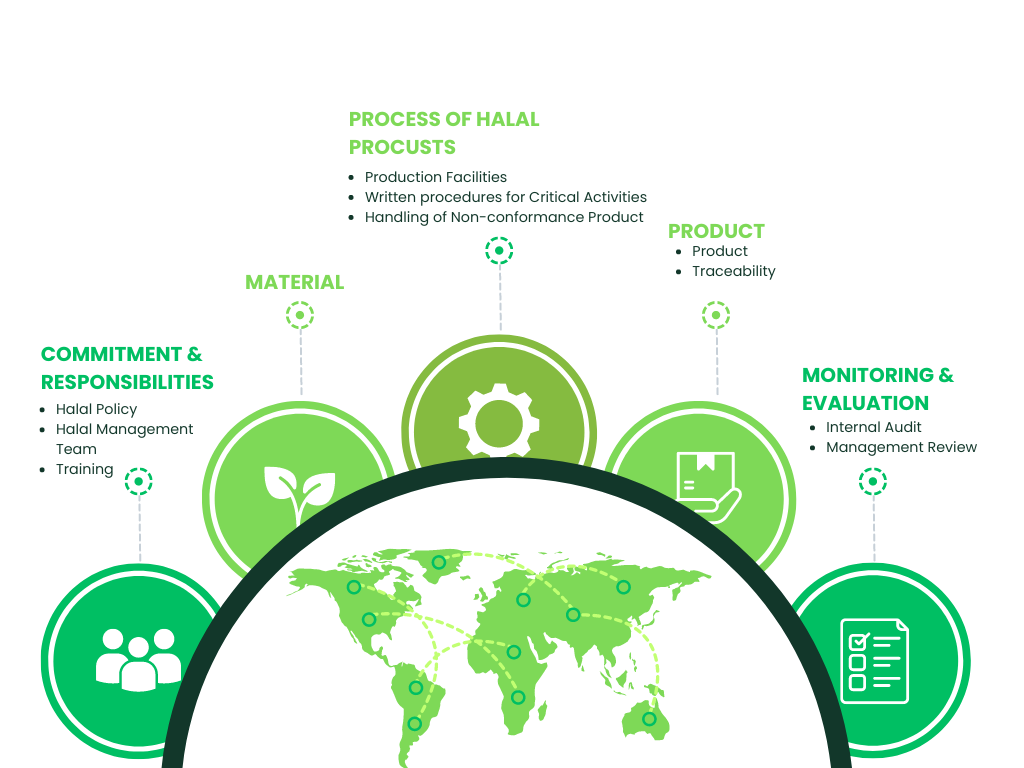
Traceability in Halal e-commerce
Establishing a halal assurance system in eCommerce requires adherence to Islamic dietary laws. This involves Supplier Verification to authenticate halal claims, regular audits, legal compliance, partnerships with Halal Certification Bodies, and user feedback mechanisms for product halal status ratings.
Introducing
smart campus
Integrating technology for efficient operations, enhanced learning, and sustainable environments in education.
Employs innovative technologies like IoT, AI, and data analytics to enhance campus life, learning experiences, and operational efficiency in educational institutions.

SERVER AND STORAGE SYSTEM
Central to a smart campus, managing data and applications. Uses advanced tech for efficient processing, storage, and retrieval, ensuring smooth operations and connectivity campus-wide.

FACILITY MANAGEMENT
IoT sensors and management software for maintenance and operations of campus facilities, ensuring efficient use of resources and timely maintenance.

STUDENT IDENTITY CARD
Multi-functional card for access, payments, and identification. Integrates with campus systems for streamlined services and enhanced security.

ATTENDANCE SYSTEM
Automates attendance tracking using biometrics or RFID. Enhances accuracy and efficiency, providing real-time data for monitoring and analysis.

SMART SECURITY SYSTEM
Integrated security systems with surveillance cameras, smart locks, and emergency alert systems to ensure safety on campus.

DIGITAL LEARNING CONTENT
Online resources and courses for interactive learning. Customized to curriculum needs, accessible anytime, anywhere, fostering a dynamic and engaging learning environment

Administrative Automation
Automated systems for administrative tasks such as enrollment, fee payment, and academic record management, streamlining processes and reducing paperwork.




